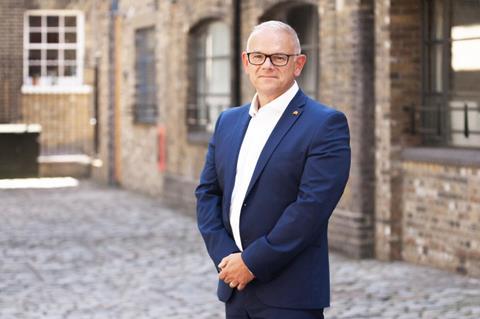Reducing car-dependency is one of several routes to improving health, wealth and wellbeing in communities, says Arcadis’ Mark Cowlard

Earlier this month Arcadis released a report setting out our plan for a shared post-covic recovery, which strengthens communities across our towns and cities.
While the pandemic is far from over, there is already a pressing need for action to rebuild our economy and tackle wider challenges. Right now, we have a unique opportunity to radically rethink how we view our communities and live our lives.
At Arcadis we have engaged with more than 1,700 individuals and organisations, including local authority leaders on the front line of the response across the UK and Ireland to understand how their priorities have changed since the pandemic began.
The top three priorities for the recovery were improving public health provision, saving the high street and tackling climate change
Our findings demonstrated a consensus between the public and local leaders on the need for a recovery that is not just green and inclusive, but one that is deliverable and affordable today.
Public polling carried out in support of the report also showed a clear preference for a focus on priorities that will improve the health, wealth and wellbeing of communities. The top three priorities for the recovery were identified as improving public health provision, saving the high street and tackling climate change.
To help local authorities understand how the private sector can help achieve this, we have developed five “levers” for a shared recovery which are:
- Embracing the principles of 15-minute communities
- Creating the right homes in the right places
- Re-imagining town centres and high streets
- Putting digital inclusivity at the heart of the health and wellbeing agenda
- Actively exploring new forms of mobility.
The renewed focus on the concept of 15-minute communities is one lever in particular that stood out in our research. It has been around for several years and, in short, seeks to rethink how communities are planned by focusing on reducing car-dependency and long commutes. It improves quality of life by ensuring all essential amenities can be reached within a 15- or 20-minute journey of home, whether on foot, bike or by public transport.
> Importance of social value in planning set to increase in wake of covid crisis, BCO predicts
> Webinar | Social value in construction
The demand for communities that are healthy, sustainable, better connected and vibrant was one of the clearest preferences in our public polling and this was reinforced by the local government professionals we interviewed. Almost all saw a move towards remodelling communities along 15-minute principles and low traffic neighbourhoods as a likely outcome of the pandemic.
A great place for planners and local authorities to start – in consultation with the community – is setting a vision of how their area or neighbourhood could look in the future. This could include people living closer to where they work, shop and play through high quality mixed-use or build to rent developments, and help deliver creative public realm initiatives, such as cycle docking stations or electric vehicle charging points.
We believe that if applied across our towns and cities, all of the levers we have identified will embed sustainable long-lasting change for the people who live within them. Whether it’s embracing walking and cycling solutions, to supporting the concept of 15-minute communities or building back better by harnessing analytics and digital decision-making.
As one local government official we spoke to said: “We are now at the nexus of a once-in-a-generation series of events”. The pandemic has caused no shortage of suffering and damage to communities, but there is now a unique opportunity for lasting positive change. However, it is only through close cooperation and collaboration from everyone – public sector, private sector and communities themselves – that an inclusive, green, healthy and deliverable recovery can be achieved.
Mark Cowlard is CEO at Arcadis UK & Ireland



























![2753-KINGSLEYCLARKE-3377 (1)[11] copy](https://d3sux4fmh2nu8u.cloudfront.net/Pictures/100x67/1/1/2/2000112_2753kingsleyclarke3377111copy_616752_crop.jpeg)
No comments yet